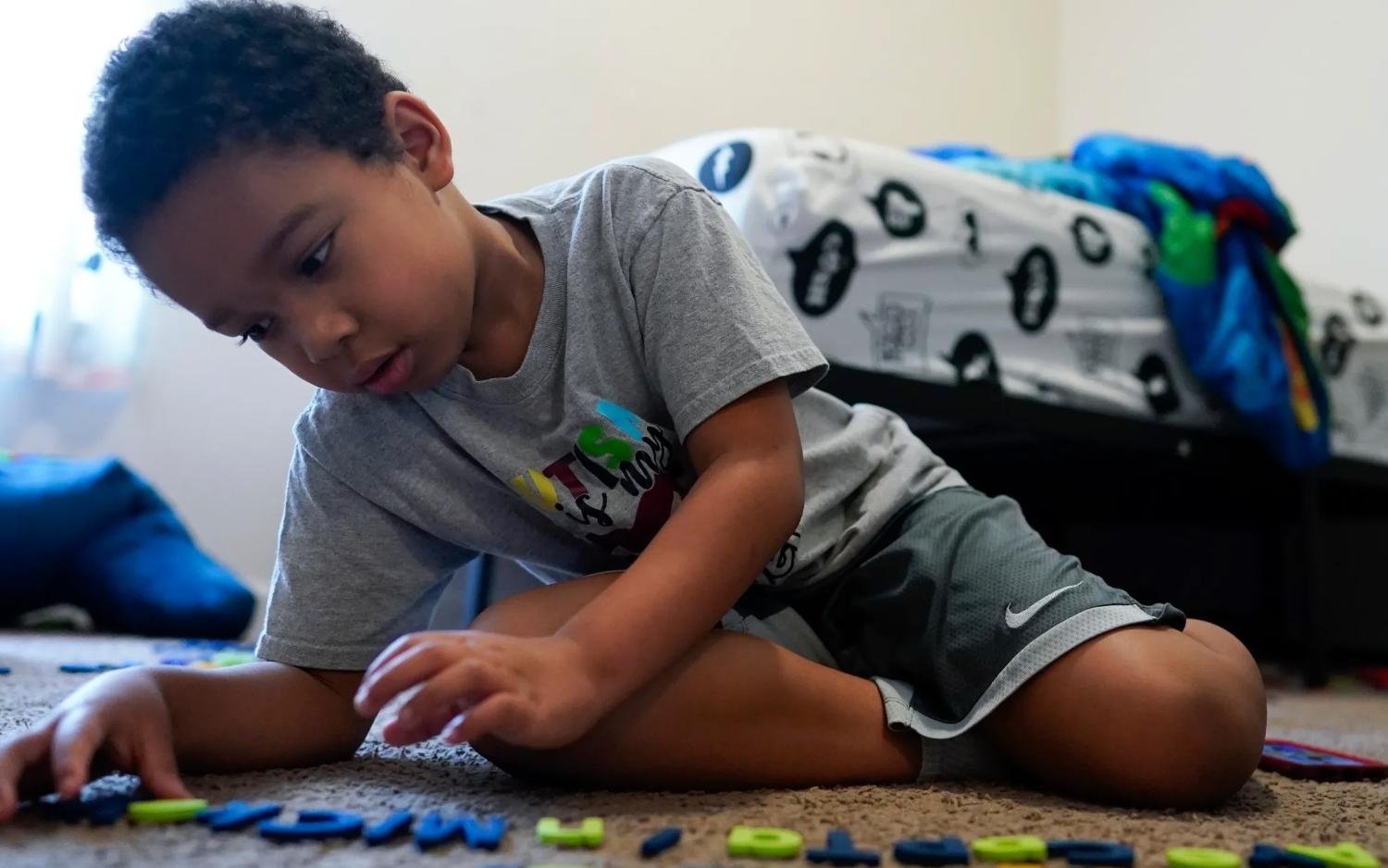Families protest at the Statehouse
On Monday, dozens of families gathered at the Statehouse to protest the proposed Medicaid changes and urge the state to reconsider its decision. They held signs that read “Don’t cut our lifeline” and “We are not a budget line item”. They also shared their stories of how the Medicaid waiver program has helped them care for their children with severe disabilities and complex medical conditions.
One of the protesters was Anastasia Davis, a mother of a 15-year-old boy named Alexander, who has spinal muscular atrophy. Alexander is physically dependent on other people for all of his needs, but he is also a straight-A student and an advocate for himself and others. Anastasia said that she receives about $14 an hour from the state to care for her son, which allows her to stay at home and provide him with the best quality of life possible.
“I’m not trying to get rich off my son ― I’m just trying to care for him,” Anastasia said. “So we’re just trying to communicate that these kids shouldn’t be bailed on.”
“And that’s what we feel like they’re doing,” Alexander added.
State cites budget shortfall and spending growth
The state’s Family and Social Services Administration (FSSA) said that the Medicaid cuts are necessary to address a nearly $1 billion budget shortfall that was discovered in December due to a forecasting error. The agency said that it spent much more Medicaid money than expected, especially on the Aged & Disabled waiver program, which covers the family caregiver payments.

The cost of the program doubled, from $30 million per month in April 2022 to approximately $66 million per month in August 2023, according to FSSA spokesperson Michele Holtkamp. That latest figure quadrupled since July 2020.
FSSA said that it will implement a number of cost-saving measures, such as ending retroactive waiver coverage, halting reimbursement rate increases, and reducing the number of services covered by the waivers. The agency said that it will work with providers and families to transition to alternative options, such as structured family caregiving, which pays a lower rate and requires more oversight.
Advocates call for reversal and reform
However, many advocates and experts have criticized the state’s plan, saying that it will have devastating consequences for the families and the individuals with disabilities. They said that the state is violating the federal law that requires Medicaid to provide home and community-based services as an alternative to institutional care. They also said that the state is failing to address the root causes of the Medicaid crisis, such as the lack of adequate funding, the shortage of qualified workers, and the inefficiencies in the system.
“We are deeply disappointed and alarmed by the state’s decision to cut the Medicaid waiver program,” said Kim Dodson, executive director of The Arc of Indiana, a nonprofit organization that supports people with intellectual and developmental disabilities. “This is not a sustainable or humane solution. It will only create more problems and hardships for the families and the individuals who depend on these services.”
Dodson said that The Arc of Indiana and other advocacy groups will continue to fight for the reversal of the Medicaid cuts and the reform of the Medicaid system. She said that they will also seek legal action if necessary to protect the rights and interests of the people with disabilities.
“We urge the state to work with us and the families to find a better way to address the Medicaid budget shortfall and to ensure that the people with disabilities have access to the services and supports they need and deserve,” Dodson said.














